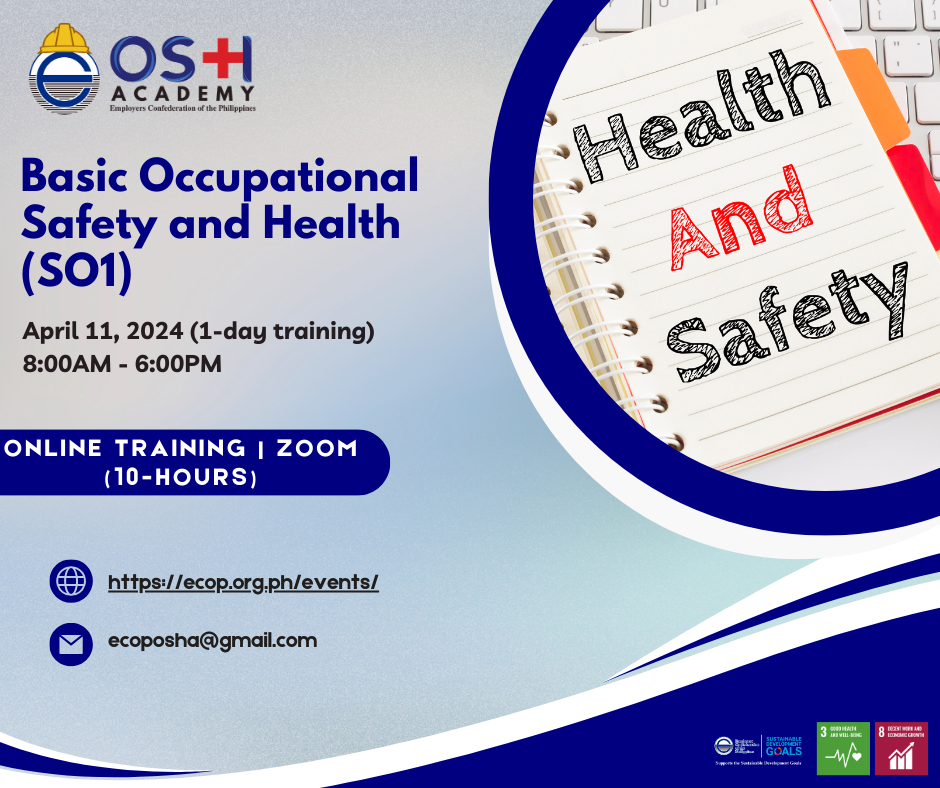ECOP, business groups release joint statement on the proposed wage increase
Business groups including ECOP, the Philippine Chamber of Commerce and Industry (PCCI), Philippine Exporters Confederation Inc. (PHILEXPORT), Federation of Filipino-Chinese Chamber of Commerce and Industry (FFCCCII), IT & Business Process Association of the Philippines (IBPAP), Philippine Hotel Owners Association (PHOA), Foreign Buyers Association of the Philippines (FOBAP), and United Portusers Confederation of the Philippines (UPC), released a joint position addressed to the Chairman of the Senate Committee on Labor, Employment and Human Resources, Senator Jinggoy Estrada, on the recent bill proposing a wage increase.
In the document, the business groups stated that they share the concern of the Chairman and the authors of the bills on how the effects of inflation have continued to dampen the purchasing capacity of Filipinos and raising wages may appear to be the easier and logical solution. However, the Group said that only a small percentage of the total workforce—16% or about 8 million in the formal sector out of the 50 million in total number of Filipino workers—will be able to benefit from this proposal.
According to the business groups, the rising inflation has also negatively impacted businesses. Of these, 98% are micro, small and medium enterprises (MSMEs) that have suffered the brunt of the pandemic and most of which may still be closed to this day. They also noted that these MSMEs are also the employers of the same Filipinos whom these bills are aiming to help.
If the proposal for increased wages is approved, these employers may have to further increase the prices of their products, reduce the number of their workers, or simply close down. Large firms which are capable of paying the wage increase only make up less than 2% of all Philippine companies, they wrote.
The business groups also remarked that a staggering 84%, who are workers in the informal sector, will see the bill as an “unhappy” bill, as they are not expected to feel any gain because most of them work on their own with no employer. This 84% represents around 42 million workers that include farmers, fishermen, market vendors, jeepney drivers, tricycle drivers, and home-based small entrepreneurs that comprise the silent majority whose situation will worsen with the bill’s passage, as they have to pay higher for their purchases once businesses start to increase prices. These are the people who will then start trooping to government offices to ask for (additional) “ayuda” when this burden becomes unbearable. It will then be relevant for them to also be invited and heard in the wage hike hearings as among the stakeholders.
Recommendations
Because of the regularity, mechanism and coverage in terms of consultations, the regional tripartite wage board’s mandate in this area becomes even stronger and credible. For this reason, the business community feels more comfortable that they continue playing this role backed up by years of relevant and on-the-ground information.
The business groups also suggested that the Committee may want to consider getting the assistance of agencies especially those in the Economic Cluster such as the Departments of Trade and Industry and Labor and Employment and the National Economic and Development Authority who can handle the pencil pushing. They noted that the issue truly needs more time and accurate information to help ensure that efforts are truly responsive to the common good.
The Group also emphasized that they welcome the creation of a technical working group (TWG) where the informal sector and agencies mentioned above can also provide inputs. The business community looks forward to further dialogues and other ways through which they can assist in this Committee work.









